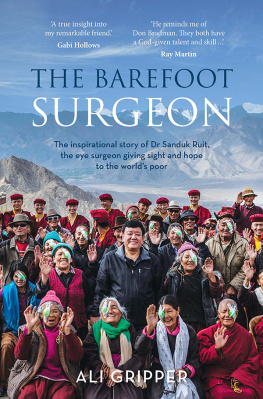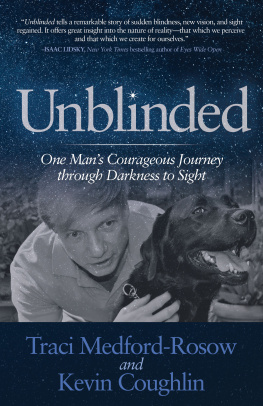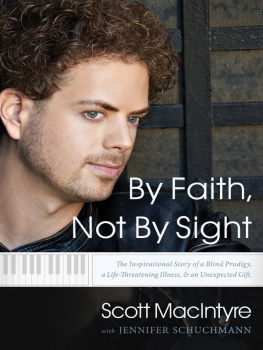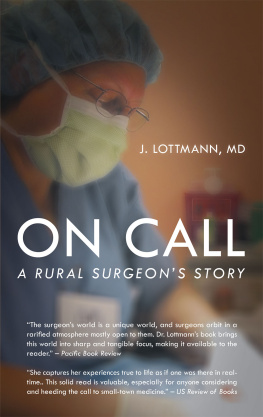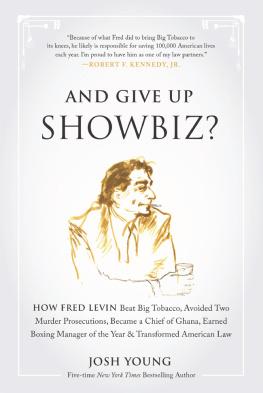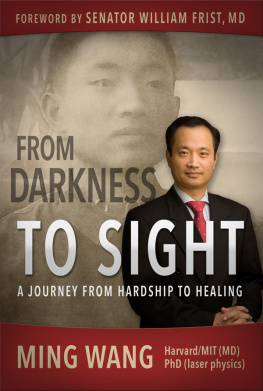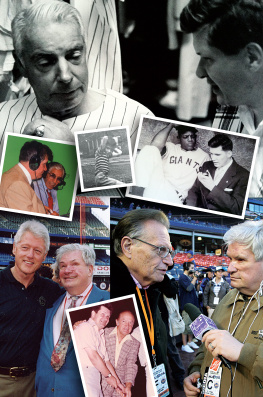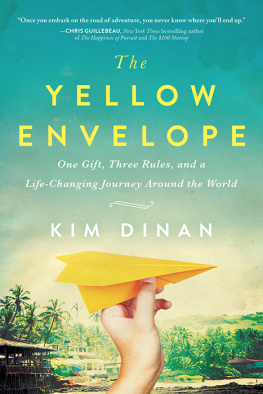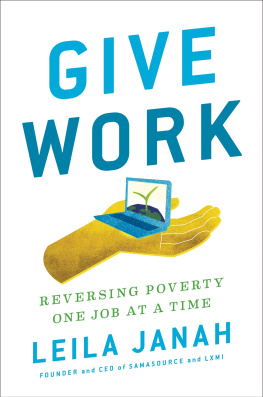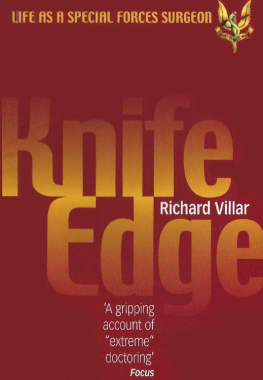
Photo by Gab Byrnes
Ali Gripper has written features for newspapers and magazines for more than two decades including Good Weekend, the Sydney Morning Herald, the Australian, the Daily Telegraph, the South China Morning Post and Country Style Magazine. She worked closely with Dr Ruit for three years to write his life story.
First published in 2018
Copyright Ali Gripper 2018
All rights reserved. No part of this book may be reproduced or transmitted in any form or by any means, electronic or mechanical, including photocopying, recording or by any information storage and retrieval system, without prior permission in writing from the publisher. The Australian Copyright Act 1968 (the Act) allows a maximum of one chapter or 10 per cent of this book, whichever is the greater, to be photocopied by any educational institution for its educational purposes provided that the educational institution (or body that administers it) has given a remuneration notice to the Copyright Agency (Australia) under the Act.
Allen & Unwin
83 Alexander Street
Crows Nest NSW 2065
Australia
Phone: (61 2) 8425 0100
Email:
Web: www.allenandunwin.com
 | A catalogue record for this book is available from the National Library of Australia |
ISBN 978 1 76029 270 6
eISBN 978 1 76063 635 7
Set by Midland Typesetters, Australia
Cover design: Julia Eim
Cover photo: Michael Amendolia
CONTENTS
For Tuomo
Ruit doesnt overdo it with words and conversation. Hes quite sober in the way he interacts with people, but what people pick up is the quality of his presence, someone who is enormously competent. When you are with him, and working with him, theres a feeling of trust and confidence that comes from his very being. Its something thats hard to describe, but which everyone feels somehow when they are with him. The fact that he travels so far with the patients to be with them characterises a truly compassionate person. Its not about being sentimental, or sitting around thinkingId really like to make a difference. He just gets up and does it, to places such as North Korea, because he knows how terrible it must be for the blind there. He never thinks at all about how he can make a good impression. What he always asks himself is how he can make a difference, with the means he has, and the skills he has, and the capacity he has. He succeeds because he has no agenda other than to help people. Its a great joy to be with him, theres a sense of deep complicity, of working for the same purpose, without having to talk about it.
Matthieu Ricard, Buddhist monk and French writer
As Henry Ford changed the world by making an automobile affordable for ordinary Americans, Ruit changed the world by devising an ingenious surgical technique and procedure that made sight restoring intraocular lens implant cataract surgery possible for people everywhere. Even for the poorest people living in remote villages.
Garry Brian, Australian ophthalmologist
Fred Hollows and Sanduk Ruit were true soul mates. But now here is Ruit, a couple of decades later, and hes gone out and hes actually done it. It was Freds imprimatur that got him launched, but Ruit just kept plugging away. He raised the money, built the hospital, trained the surgeons, and held the camps. Ruit has almost halved blindness in Nepal and is spreading his technique to other countries. Its amazing to think that, in my lifetime, or in my childrens lifetime, we will see cataract blindness ended. People will keep getting cataractsits part of the ageing processbut Ruit and the army of surgeons hes training are putting a lid on it. What Ruit has achieved is well beyond Freds wildest dreams. Ruit went on to become a God-like figure who looks after the blind. He reminds me a lot of one of the other remarkable men Ive interviewed, Don Bradman. They both have a God-given talent and skill that they both have harnessed in a highly disciplined way. Bradman had no ego at all; he just knew he was a fantastic batsman. Ruit is also clearly a man without ego and a man with immense self-respect. He doesnt need to boast about how good he was. He didnt ever need to tell people he was a brilliant surgeon, he just is. Hes very humble but he certainly knows his place in medicine. He doesnt dismiss winning the Nobel Prize as ridiculous. Hes got great self-respect. Ive covered so many fascinating stories in my life and Ill never forget the joy on the patients faces at an eye camp Ruit held in Myanmar a few years ago. Ruit did 600 operations that week and there was this incredible collective joy as he looked at the rows and rows of his patients who could see again and who were absolutely jubilant. They just sort of broke into dance and song. The surgeons watching him work were just in wonderment at the pace and meticulousness of his surgery. He is just so fast. We put a clock on him to watch himhe was doing operations in about five minutes, and the other doctors were doing it in about 15 minutes. It was just astonishing to stand there and watch.
Ray Martin, Australian journalist
The morning sun was just beginning to light up the snow peaks of the Himalayas in north-eastern Nepal as Kanchi Mayas brother brought her to the small community eye centre. In the custom of the region, he carried his adult sister on his back in a large wicker basket, attached to his forehead on a tumplinea mode of transport known as basket taxi. Kanchi was in patched clothes, her body rail-thin from malnutrition. After her brother lowered her onto the ground, she shuffled timidly with bare feet toward the eye camp, holding her brothers hand for support. Beside her was her young daughter, who carried her sickly baby brother. Despite being swaddled tightly in a blanket, the one-year-old boy looked close to perishing.
One of the assistants gently led Kanchi to Dr Sanduk Ruits operating table. He asked her how she made a living. Shaking with nerves, she whispered that she had been trying to support her children by growing maize and tending goats. Shed been blind in both eyes for almost four years and had never seen her son. Like so many blind women in the developing world, she had been rejected by her husband and his family after she had lost her sight and was no longer useful. Shed been taken in by her brother instead.
Ruit examined her eyes, which were clouded with the large pearly discs that signify advanced cataracts. He knew that if the operation went well, Kanchi would be able to see clearly the next day. An anaesthetic block was given under the sides of her eyes. Half an hour later, a nurse swabbed the rust-brown antiseptic over Kanchis eyes and draped a green cloth with a hole cut out around the eyes. Dont be scared, Ruit told her, as he separated her eyelids open with a small wire speculum, and then patted her gently on the shoulder. There is no pain, and Im going to give you your sight back.
He lowered the microscope over her eye and went to work. He quickly removed the first cataract, as hard as a walnut, and replaced it with a plastic intraocular lens, which had been specially measured for her, smaller than a contact lens. The incision he made in her eye was so small and delicate that it would seal without stitches the next day.

